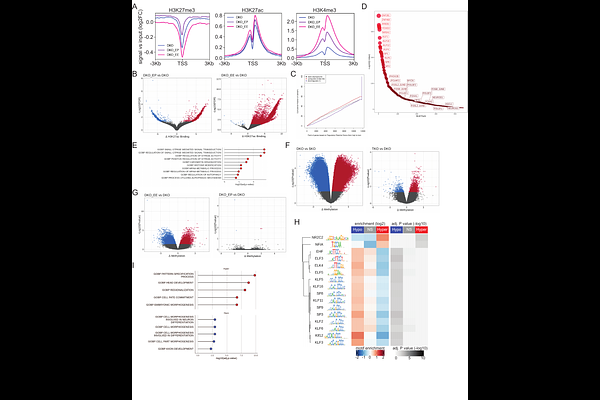EZH2 alters aggressive variant prostate cancer subtype evolution, but is not required for neuroendocrine prostate cancer

EZH2 alters aggressive variant prostate cancer subtype evolution, but is not required for neuroendocrine prostate cancer
Jacobi, J. J.; Wadosky, K. M.; Jaiswal, N.; Zhang, X.; Wang, Y.; Singh, P.; Wang, J.; Gomez, E. C.; Wang, J.; Xu, B.; Cejas, P.; Kukreja, S.; LONG, H. W.; Goodrich, D. W.
AbstractAdvanced prostate cancer (PrCa) remains a leading cause of cancer-related death among men because nearly all patients progress on standard therapy that targets androgen receptor (AR) signaling. An important mechanism driving therapeutic resistance is lineage plasticity, the ability of PrCa cells to reprogram into lineage variants like neuroendocrine (NE) PrCa that no longer depend on AR signaling. The histone methyltransferase EZH2 has been implicated in PrCa lineage plasticity and EZH2 inhibitors are being evaluated clinically for the treatment of PrCa. Here we test how Ezh2 impacts the evolution of PrCa lineage plasticity using genetically engineered mice and human patient data. Reduced Ezh2 expression diversifies the evolution of PrCa lineage variants, including a newly discovered variant with high expression of neurofilament genes, in both mice and humans. Lineage variant diversification is associated with activation of Klf transcription factor programs and AR cistrome reprogramming that is normally repressed by Ezh2. These findings advance the understanding of PrCa lineage plasticity and have implications for using EZH2 as a target for PrCa therapy.